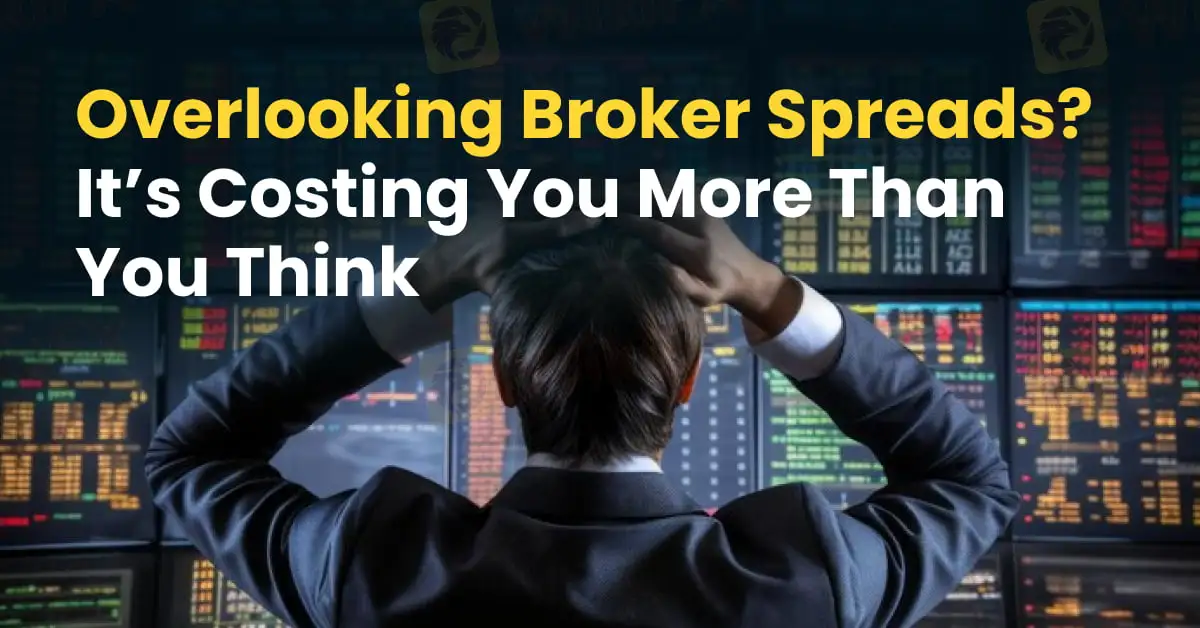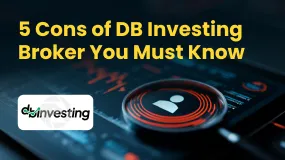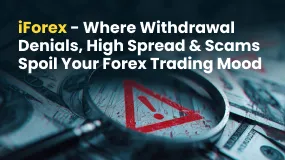简体中文
繁體中文
English
Pусский
日本語
ภาษาไทย
Tiếng Việt
Bahasa Indonesia
Español
हिन्दी
Filippiiniläinen
Français
Deutsch
Português
Türkçe
한국어
العربية
Overlooking Broker Spreads? It’s Costing You More Than You Think
Abstract:In the ever-competitive world of online trading, where margins are slim and timing is everything, traders often obsess over entry strategies, risk management, and technical setups. Yet one critical element is routinely underestimated, if not outright ignored, especially by retail and novice traders alike, is the broker’s spread.

In the ever-competitive world of online trading, where margins are slim and timing is everything, traders often obsess over entry strategies, risk management, and technical setups. Yet one critical element is routinely underestimated, if not outright ignored, especially by retail and novice traders alike, is the brokers spread.
At its core, the spread is the difference between the bid and ask price quoted by a broker. It is, quite simply, the cost of doing business in the markets. For market makers and ECN brokers alike, the spread represents either a primary or supplemental income stream. And for traders, particularly those operating with high frequency or tight profit targets, it represents a potentially significant erosion of earnings.
While a few pips may seem negligible on a single trade, the reality is far from trivial. Consider a scenario where a trader executes 100 trades per month on a major forex pair with an average spread of 1.5 pips, compared to another broker offering 0.5 pips. The difference of 1 pip per trade, when multiplied across all positions, could cost the trader hundreds, even thousands, in cumulative trading costs annually. Over time, such leakage can significantly impact overall profitability, particularly for scalpers, day traders, and algorithmic strategies that rely on high-frequency execution.

Moreover, spreads can vary not only from broker to broker, but also across account types within the same platform. Standard accounts often bundle the cost into wider spreads, while ECN or raw spread accounts may offer tighter pricing but charge a commission. While both pricing models can be legitimate, traders must weigh the total cost per trade, not just the headline spread or commission, to accurately compare accounts.
The importance of a tight, stable spread becomes even more apparent during high-volatility events, such as major economic releases or geopolitical developments. Brokers with subpar liquidity arrangements may widen their spreads dramatically during such periods, triggering stop-outs or undermining strategy effectiveness. As such, consistent spread behaviour under stress conditions is just as critical as the advertised average.
It is also essential to remember that while spreads may appear insignificant in isolation, they compound silently and relentlessly, particularly for traders with narrow profit margins or short-term strategies. In essence, a high spread functions as a form of friction, quietly siphoning off profits that could otherwise have compounded into meaningful gains over time.
In a market where every edge counts, neglecting to evaluate a broker‘s spread offering is not just an oversight, but it is also a strategic error. Savvy traders understand that profitability is not only about making good trades, but also about minimising unnecessary costs. A broker’s spread may not be as attention-grabbing as a trading strategy or signal service, but its long-term impact on performance is arguably just as critical.
Choose your broker wisely. Because in trading, the small things arent so small after all.

Disclaimer:
The views in this article only represent the author's personal views, and do not constitute investment advice on this platform. This platform does not guarantee the accuracy, completeness and timeliness of the information in the article, and will not be liable for any loss caused by the use of or reliance on the information in the article.
Read more

5 Cons of DB Investing Broker You Must Know
It's always advisable to read online review articles about forex brokers you are thinking to Invest your money with. The forex market has become increasingly unsafe due to the rise of fraudulent brokers. Review articles help you spot scam brokers and protect your money. Read this important article about DB Investing to stay fraud alert.

iForex - Where Withdrawal Denials, High Spread & Scams Spoil Your Forex Trading Mood
Are high spreads charged by iForex disallowing you to make profits? Do you feel that you will never be able to withdraw from iForex? It's nothing new! Read this exposure story where we have highlighted complaints from several investors.

Scam Alert: Cloned Broker Scams on the Rise
Reputed authorities like the FCA have issued warnings against brokers who act genuine but are actually fake brokers. They copy details such as logos, names, branding, and sometimes even employee appearances to trick investors and steal money from them.

Fraud Alert: Don’t Trust These Firms, SC Malaysia Warns
Investors, Pay Attention! This is a serious warning from the Securities Commission Malaysia against 5 scam brokers operating in the forex market without a legal license. Here is the list of 5 fake brokers you must avoid.
WikiFX Broker
Latest News
What Is Forex Currency Trading? Explained Simply
LSEG Announces £1 Billion Share Buyback Program
Ultima Markets enters the UK and gains the FCA license
SEC Lawsuit Targets Real Estate Fraud Scheme by Joseph Nantomah
A Beginner’s Guide to Trading Forex During News Releases
Forex Hedging Strategies - Calming You Amid Market Chaos
ASIC Regulated Forex Brokers: Why Licensing Still Matters in 2025
Key Events This Week: ISM, Trade Balance And More Earnings
Think Uncle Sam Owes $37 Trillion? It's Far Worse Than That
SkyLine Judge Community: Appreciation Dinner Successfully Held in Malaysia
Currency Calculator


